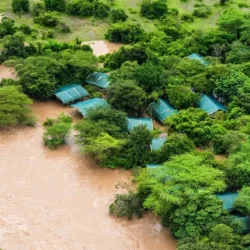The world’s focus on sustainability often converges on a fundamental issue: agriculture and food security. Nowhere is this more crucial than in Africa, where farming is the economic bedrock, employing roughly 65-70% of the continent’s workforce and serving as a linchpin for global development goals, particularly zero hunger, responsible consumption, and climate action.
Despite its vital role in feeding a growing global population, African agriculture is reeling. A confluence of threats—climate change, land degradation, and volatile markets—is pushing food insecurity onto a worrying upward trajectory that began around 2015. The stability of the African food supply, therefore, is a matter of profound global concern.
In recognition of this global significance, the Group of 20 (G20) major economies has increasingly folded these socioeconomic and ecological crises into its high-level agenda.
The G20 first gave agriculture and food security prominent space at the 2009 Pittsburgh Summit. By 2011, the Agriculture Working Group was formalized, and in 2014, the Food Security and Nutrition framework was adopted, setting priorities for infrastructure investment, addressing market failures, and boosting international collaboration in research.
Recent G20 declarations underscore a pivot toward long-term solutions. The 2022 leaders’ statement stressed the imperative of scientific cooperation, sustainable food systems, and producer-consumer dialogues to stabilize the global food security agenda.
In 2023, India’s G20 Presidency sharpened the focus, zeroing in on four key areas: food security and nutrition, inclusive value chains, digitization for agricultural transformation, and Climate-Smart Agriculture (CSA).
The upcoming 2025 G20 Presidency, led by South Africa—the first African nation to hold the position—is being viewed as a strategic opportunity to globally elevate Africa’s specific farming priorities. Operating under the theme “Solidarity, Equality, Sustainability,” South Africa is uniquely positioned to champion context-specific solutions for the continent’s agricultural sector.
Leveraging its leadership role, South Africa can push for the effective implementation of Climate-Smart Agriculture (CSA). This approach is seen as a critical, two-pronged strategy: it aligns with Africa’s urgent need to bolster food security while simultaneously making a meaningful contribution to the global pursuit of sustainable development.
This push for CSA is vital, yet it faces significant challenges and opportunities across the continent. South Africa’s presidency is poised to provide a high-profile platform to outline these realities, setting the stage for concrete G20 recommendations aimed at securing the future of farming in Africa and, by extension, the world.




